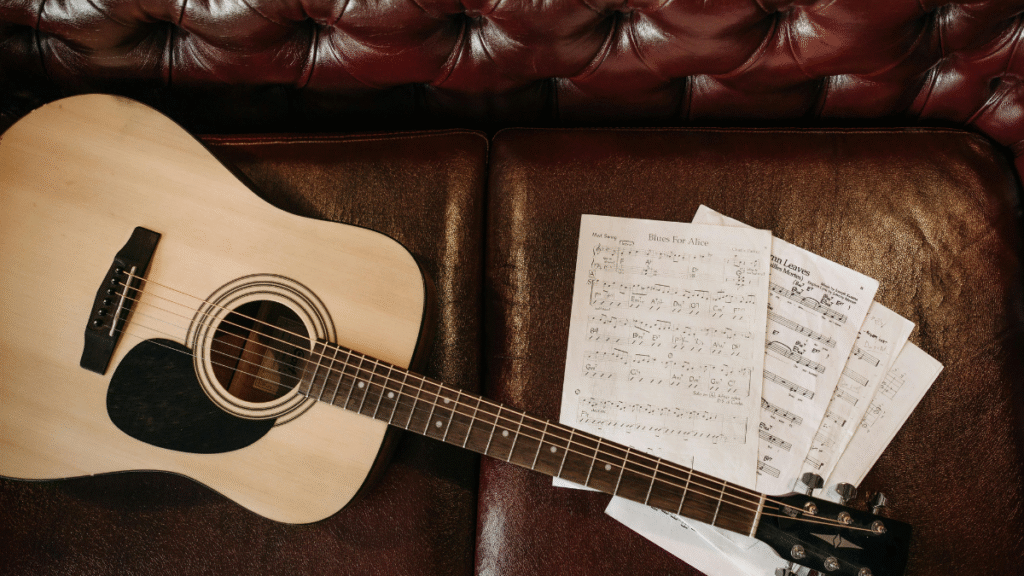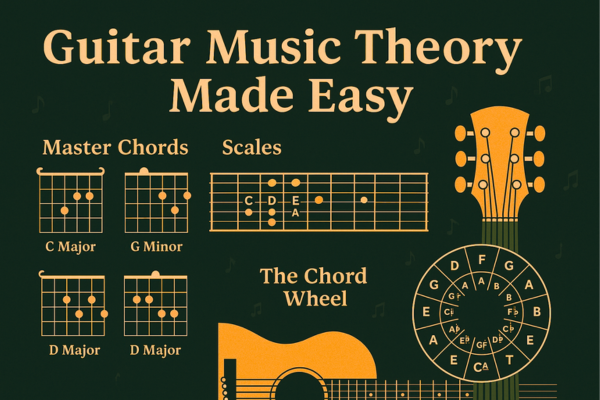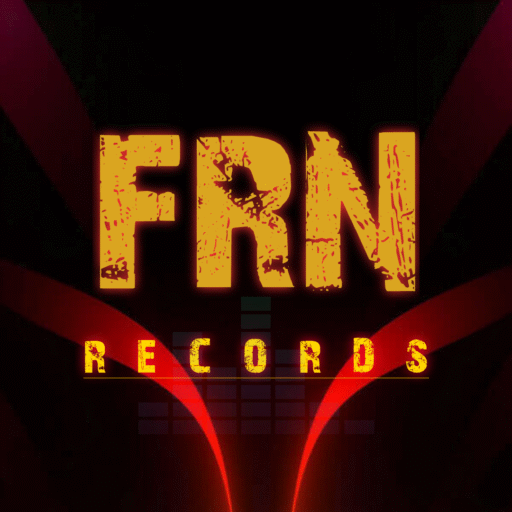Guitar Music Theory: A Beginner-Friendly Guide to Mastering Your Instrument
Affiliate Disclosure
This article contains affiliate links. If you buy through them, we may earn a small commission.
Learn guitar theory faster using beginner books, scale charts, and online interactive courses.
📥 FREE “Guitar Theory Guide” PDF.

Whether you’re strumming your first chord or already riffing like a pro, guitar music theory is the secret weapon that separates casual players from true musicians. It’s not about boring formulas — it’s about understanding how music works on your fretboard. Let’s dive deep into the world of guitar and music theory and unlock your true potential.
What Is Guitar Music Theory?
Guitar music theory is the study of how musical notes, chords, scales, and rhythm interact on the guitar. It’s the roadmap that helps you make sense of what you’re playing — and why it sounds good (or doesn’t).
Think of it as your guitar’s “language.” Once you understand it, you can:
-
Create better solos
-
Write your own songs
-
Jam with others effortlessly
-
Learn music faster
Why Every Guitarist Should Learn Music Theory
Still think theory is just for nerds in music school? Think again.
Learning guitar theory for beginners helps you:
-
Understand chord progressions
-
Easily transpose songs to any key
-
Improve your improvisation
-
Memorize scales and modes
-
Decode what your favorite guitarists are doing
Even bassists benefit — yes, we’re talking about music theory for bass guitar too!
The Building Blocks of Guitar Music Theory
Let’s break down the basics that every guitarist should know.
1. Notes on the Fretboard
Before anything else, get familiar with where each note lives on your fretboard. Notes are the DNA of chords and scales. If you don’t know where notes like C, D, or F# are — start there.
Tip: Learn all notes on strings 6 and 5. It helps you navigate the entire neck faster.
2. Chord Theory: Understand the Why Behind the Sound
Chords are built from scales. For example, a C major chord uses the 1st, 3rd, and 5th notes of the C major scale: C-E-G.
This is where chord theory comes in:
-
Major chords = happy, open
-
Minor chords = sad, emotional
-
7th chords = bluesy, jazzy
-
Suspended chords = airy, unresolved
Once you learn how chords are built, you’ll never just memorize shapes — you’ll understand them.
3. The Chord Wheel: Your Best Friend
Ever heard of the chord wheel? It’s a visual tool that helps you:
-
Find chord progressions that sound great
-
Switch between keys
-
Identify relative minors
Using the chord wheel makes writing songs and improvising super easy — it’s a must-have for theory learners.

4. Guitar Scales: The Backbone of Solos
Whether it’s blues, metal, pop, or jazz, scales are at the heart of it.
Essential scales to learn:
-
Major Scale
-
Minor Scale
-
Pentatonic Scale
-
Blues Scale
-
Modes (like Dorian, Mixolydian)
These are what guitar legends like Hendrix, Clapton, and Satriani use. Once you understand how scales relate to chords, you can shred with intention.
5. Learn Music Theory Guitar With a Purpose
Don’t just read — apply. The best way to learn music theory guitar is by playing real songs, creating your own riffs, and connecting concepts directly to the fretboard.
Some ways to apply what you learn:
-
Write a song using only chords from one key
-
Jam over a backing track in a specific mode
-
Use the chord wheel to write a progression
Common Mistakes Guitarists Make (and How to Avoid Them)
-
Memorizing without understanding — Learn why chords work, not just how to play them.
-
Avoiding theory altogether — It won’t make you “less creative,” it will supercharge your creativity.
-
Skipping over basics — Even pros practice the fundamentals.
-
Not connecting theory to playing — Theory should live on your fretboard, not just your notebook.
Guitar Theory Lessons: How to Structure Your Learning
Here’s a simple roadmap for beginners:
| Week | Focus Area | Action Step |
|---|---|---|
| 1 | Notes + Intervals | Learn notes on strings 6 & 5 |
| 2 | Major & Minor Scales | Practice 1 octave on one string |
| 3 | Chord Construction | Build major, minor, 7th chords |
| 4 | The Chord Wheel | Write 3 progressions in different keys |
| 5 | Modes + Application | Improvise using Dorian or Mixolydian mode |
| 6 | Songwriting with Theory | Write your first theory-based song |
Q1. Is music theory necessary to play guitar?
No, but it makes you a much better, more confident player. You’ll learn faster and play smarter.
Q2. What’s the best way to learn guitar theory?
By combining learning with playing — apply every theory concept on the fretboard immediately.
Q3. Is the chord wheel really useful?
Absolutely! It helps simplify songwriting and modulation. Every serious guitarist should learn to use it.
Q4. What’s the difference between music theory and guitar theory?
Music theory is general; guitar theory applies those concepts specifically to guitar.
Q5. Can bass players use the same theory?
Yes! Music theory for bass guitar is almost identical — just applied differently due to tuning and role in a band.
Final Thoughts: Music Theory Makes You a Guitar Master
You don’t need to be a theory genius to be a great guitarist — but a little knowledge goes a long way. Start small, stay curious, and practice consistently. Whether you’re diving into guitar chord theory or exploring guitar theory lessons, each step brings you closer to musical mastery.
So go ahead — unlock your fretboard. Your next great solo is waiting.
You can read also: How To Play Guitar
What’s your favorite chord shape? Share it below!
Need help with modes or scales? Ask us—we’re here!
Hi, I’m Nikhil Farenjiya, a music producer and professional singer with 10 years of experience. I share my knowledge and passion for music through writing to help aspiring artists grow. My blog is dedicated to inspiring and guiding music lovers on their creative journey.


